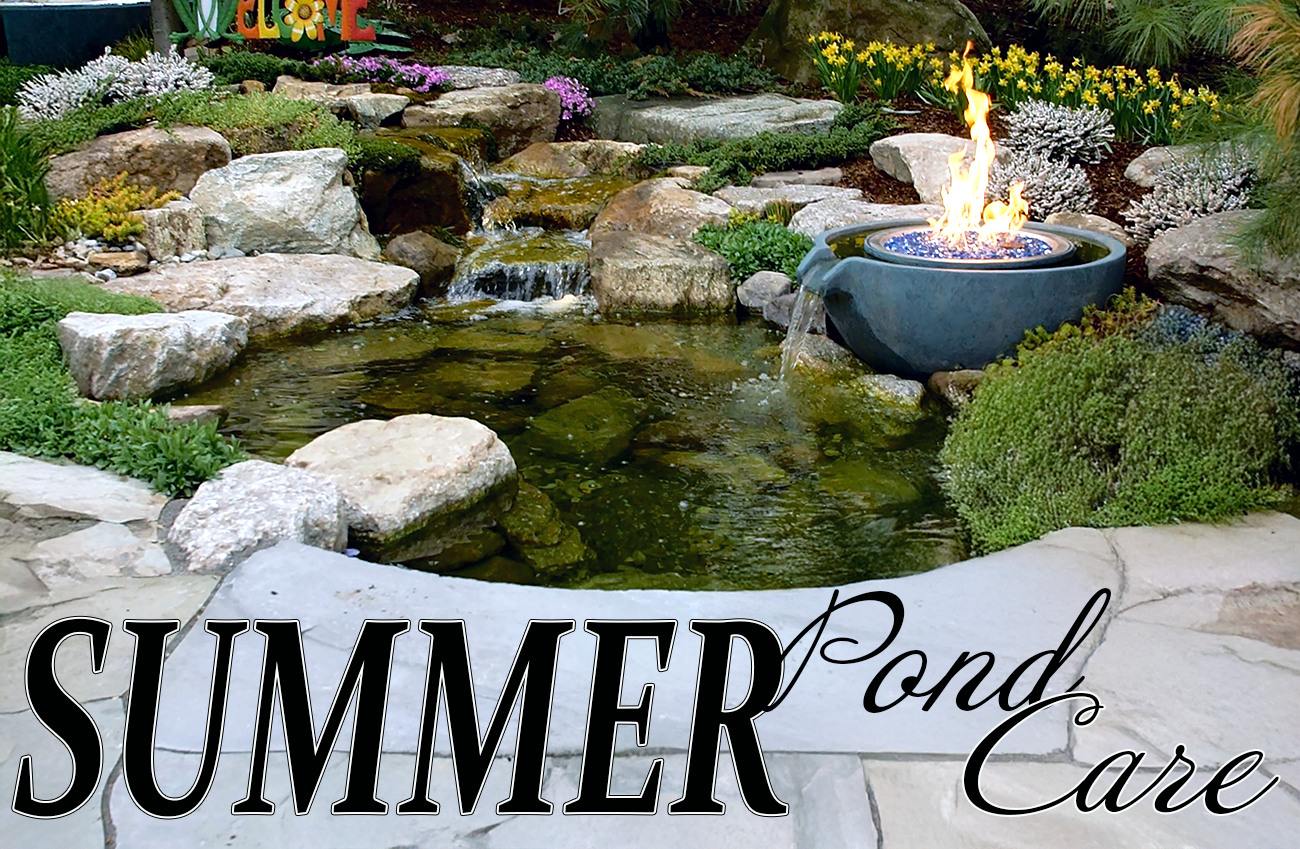How can I keep my New Jersey pond healthy this summer?
☀️ Summer can be brutal on your pond. High temps, algae spikes, and low oxygen levels can quickly turn a clear backyard oasis into a murky mess. If you’re in New Jersey, here’s your essential game plan to keep your pond cool, clean, and thriving through the heat.
🧹 1. Stay on top of weekly maintenance
During summer, water evaporates fast. Top off your pond every few days with dechlorinated water. Clean out filters weekly to keep debris from building up and messing with clarity.
Check your pump—if it sounds off or flow seems weak, take action. Feed fish once or twice daily, but only what they can eat in 2–3 minutes. Extra food = sludge = algae.
🌿 2. Use plants to control algae naturally
Algae thrive in heat and sunlight. Combat it with shade and nutrient-hungry plants. Water lilies, pickerel weed, and water hyacinth reduce sun exposure and compete with algae for nutrients.
Still seeing green? Use barley straw or a UV clarifier. And always remove dead leaves and uneaten food before they decompose.
💨 3. Increase oxygen during hot spells
Hot water = less oxygen. Even with a waterfall, your pond might need more help. Drop in an aerator or bubbler—especially if your pond is deep.
Signs of low oxygen? Fish gasping at the surface or huddling near the waterfall. Add bubbles fast.
🌸 4. Choose hardy native plants for summer balance
Native New Jersey pond plants like pickerel weed, blue flag iris, and arrowhead thrive in summer. They shade the water, absorb excess nutrients, and attract beneficial pollinators.
Position them in shallow zones and floating areas for maximum impact.
🐟 5. Stock your pond with summer-hardy fish
Shubunkin, comet goldfish, and koi can handle New Jersey’s summer heat. They’re resilient, attractive, and help with mosquito control.
Make sure your pond is at least 3 feet deep. And always quarantine new fish for 2–4 weeks to prevent disease outbreaks.
⚠️ 6. Don’t make these common summer mistakes
Avoid these:
- Skipping maintenance
- Overfeeding fish
- Ignoring odd pump behavior
- Adding too many plants or fish
- Not quarantining new fish
Routine checks and balance are your best defense.
🧼 Keep your New Jersey pond thriving this summer
It’s all about balance. With regular upkeep, smart plant choices, and proper aeration, your New Jersey pond will stay healthy, clear, and beautiful all summer long.
Need a mid-summer tune-up or algae fix? Contact us—we’ve got your pond covered.
Related Posts:
- 10 Fish Pond Maintenance Mistakes New Owners Make
- Best Aquatic Plants for New Jersey Water Gardens
Looking for more great tips, tricks and quality content? Check out our YouTube Channel!
❓ FAQ: Real New Jersey Pond Summer Questions
Q: I live in Essex County. Do I need an aerator if I already have a waterfall?
🌀 Yes. Waterfalls help, but they don’t oxygenate deeper water—especially during long, hot stretches in places like Essex.
Q: What’s the best plant for summer algae control in Morris County?
🌿 Pickerel weed. It’s native, thrives in local conditions, and aggressively absorbs nutrients.
Q: How can I tell if oxygen is low in my Passaic County pond?
🐟 Fish gasping at the surface, acting sluggish, or crowding near the waterfall means trouble. Get an aerator.
Q: In Union County, can I feed my koi more in July and August?
🍽️ Slightly. Warmer temps mean faster metabolism, but remove leftovers quickly to avoid murky water.
Q: Is it safe to top off my Somerset County pond with tap water?
🚰 Yes—but only if you use a proper dechlorinator to protect your fish and plants.
New Jersey Waterfall Installation Finished in Just 1 Day?
Why is my New Jersey pond brown? 3 easy fixes that work!
